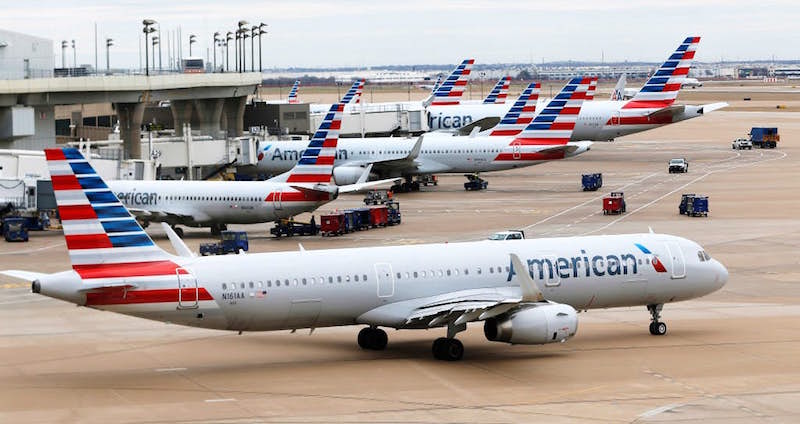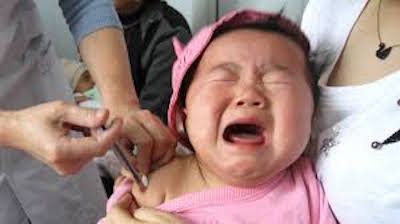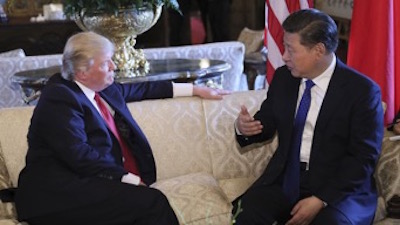
 President Trump's Trade War Bailout
President Trump's Trade War BailoutOn Tuesday, President Trump pledged $12 billion in aid to American farmers and ranchers suffering from the fallout of the escalating China-U.S. trade war. Because the agriculture sector in the American Midwest has been hit particularly hard by China's retaliatory duties to the Trump administration's tariff on $34 billion in Chinese goods, the Agriculture Department will begin to make direct payments to corn and soybean farmers and buy surpluses of certain crops to distribute in food assistance programs.
With the 2018 midterm elections looming, some have argued that the bailout has political motivations. According to the Brookings Institution, 65% of the workers who are negatively affected by China's tariffs come from Republican-leaning counties that favored Trump in the presidential election. Bailing out the agricultural sector is considered a targeted response by the president to shore up support in a key demographic.
However, the president's measures faced immediate criticism from many groups in the United States, including farm groups and lawmakers from both sides of the political aisle. Republican Senators have pointed out that other industries, such as manufacturing and energy, are also being hurt by tariffs but are not receiving compensation, while others have been critical of the step away from the party's traditional free market stance. Illinois farmers have stated that they would prefer to be able to sell their crops, rather than receive government handouts.
Chinese analysts have warned that the emergency subsidies are a likely sign of increasing hostilities, especially as President Trump specifically accused China of unfairly targeting American farmers for leverage in the trade war. They argue that the aid for farmers could be indication that the president is committed to his tit-for-tat trade policies. This week, our contributors Cheng Li and Diana Liang of Brookings considered the political and security factors that are preventing China and the U.S. from cutting a deal in the current trade dispute, arguing that "political and security pressures could constrain the leaders and pressure them to stay the course or even escalate tensions."
 U.S. Airlines Bow to Pressure Over One China
U.S. Airlines Bow to Pressure Over One ChinaThe United States' three biggest airlines have bowed to what the White House called "Orwellian nonsense" — namely, China's request that they stop referring to Taiwan as an independent country on their websites — illustrating the power of China's economic leverage over private American firms.
American Airlines, Delta Air Lines and United Airlines all began to change the way they refer to Taiwan on their websites on Wednesday, just ahead of the July 25 deadline set by China's Civil Aviation Administration (CAAC) in a letter sent to the carriers. The letter, sent to more than 40 foreign airlines, requested the airlines refer to Taiwan as "China Taiwan" or the "China Taiwan region" in line with the One China policy. In May, the White House released a statement saying that the U.S. "strongly objects to China's attempts to compel private firms to use specific language of a political nature in their publicly available content." Despite the U.S. government's call for the airlines to refuse to comply, the airlines this week changed their references to list cities on the island, such as Taipei, with no mention of country. American Airlines, in a statement from a spokesperson, said, "Air travel is global business, and we abide by the rules in countries where we operate."
However, on Thursday, the CAAC) released a statement saying the changes by United, American, Delta and Hawaiian Airlines were "still incomplete." In a possible attempt at compromise, the airlines removed mention of "Taiwan" but did not replace the country name with "China." CAAC added that it was monitoring the airlines' websites and would take the "appropriate steps" depending on the situation.
 Vaccine Scandal Cracks Fragile Trust
Vaccine Scandal Cracks Fragile TrustChina's vaccination system has made positive strides in recent decades: gaining World Health Organization approval and impressing observers as more than 99% of vaccines tested by the country's regulator were up to quality standards. However, its reputation has taken a hit this week by a well-publicized vaccine scare in which over 360,000 children received mandatory, yet faulty DPT vaccinations that were supposed to protect against whooping cough, diphtheria, and tetanus.
Public outcry over the situation led authorities to launch a formal investigation into the manufacturer, Changsheng Biotechnology Co. The probe has found the company falsified a number of documents including production records and product inspection records. Chinese Premier Li Keqiang chastised the company, saying it had violated a "moral red line."
News of this health scare comes ten years after the Fonterra powdered milk scare, which led to the illness of over 50,000 children and the deaths of four. This past scandal still looms large, and the public is becoming more aware of certain regulatory realities, such as the fact that only 5% of vaccine batches are examined for effectiveness. Many parents are taking personal measures to protect their children: crossing the border to vaccinate their children in Hong Kong is among the most popular. During the powdered milk scare, Chinese parents also flocked to the city to purchase products, as the abundance of foreign imports were considered safer than their own government-regulated options.
 This Week's Top Commentary
This Week's Top CommentaryIn a commentary for China US Focus this week, Cheng Li and Diana Liang of the Brookings Institution explore the political and security issues "playing out on the sidelines" that may be preventing China and the U.S. from reaching a peaceful settlement to the ongoing trade war.
The authors identify a general trend of shrinking common ground between the two parties which limits the number of "bargaining chips" that each leader has to negotiate with. These problems are exacerbated by the immense political pressures that Presidents Xi and Trump are under at home. Both leaders feel the need to appear tough and secure a political win from this highly visible conflict, and neither feels they can be the first to cave to the other's demands.
In spite of this, the authors believe there is hope for a resolution. One thing that both parties can agree on is the need to prevent this trade war from becoming a military one. "Perhaps it is this risk," the authors write, "that can bring the two sides to the table," and avoid a "vicious zero-sum competition, which will in fact yield no winners at all." Read the full article here.
Prepared by China-US Focus editorial teams in Hong Kong and New York, this weekly newsletter offers you snap shots of latest trends and developments emerging from China every week, while adding a dose of historical perspective.
- 2018-07-20 Xi Charms the World
- 2018-07-13 China Defends WTO Record in the Face of Additional U.S. Tariffs
- 2018-07-06 The Trade War Begins
- 2018-06-29 President Trump Chooses Slightly Softer Option on Chinese Investment
- 2018-06-22 Trade Tensions Spark Stock Sell-Off in China
- 2018-06-14 How “Comprehensive” Is the Kim-Trump Agreement?
- 2018-06-08 China Awards Putin First Medal of Friendship
- 2018-06-01 USPACOM Rebranded As U.S. Indo-Pacific Command
- 2018-05-25 Trump Cancels North Korea Meeting
- 2018-05-18 The On/Off Trump-Kim Summit
- 2018-05-11 American Goods Are Stuck at Chinese Ports
- 2018-05-04 China and the U.S. Lay Trade Demands on the Table
- 2018-04-27 U.S. Delegation Will Visit China Next Week
- 2018-04-20 China and the U.S. Seek Allies in Trade Dispute
- 2018-04-13 President Xi Reviews the PLA Navy
- 2018-04-06 China and Russia Pledge Military Cooperation in a Signal to the United States
- 2018-03-30 Kim Jong Un Visits Beijing on First Overseas Visit
- 2018-03-23 President Trump Asks for Tariffs on Around $50 Billion Worth of Chinese Imports
- 2018-03-16 Tillerson to be Replaced by Mike Pompeo as Secretary of State
- 2018-03-09 President Trump Agrees to Meet Kim Jong-Un
